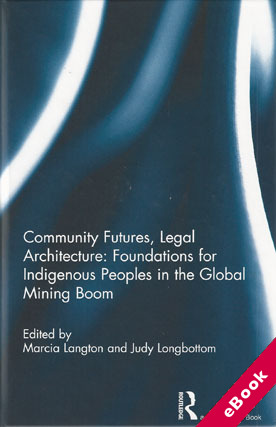
The device(s) you use to access the eBook content must be authorized with an Adobe ID before you download the product otherwise it will fail to register correctly.
For further information see https://www.wildy.com/ebook-formats
Once the order is confirmed an automated e-mail will be sent to you to allow you to download the eBook.
All eBooks are supplied firm sale and cannot be returned. If you believe there is a fault with your eBook then contact us on ebooks@wildy.com and we will help in resolving the issue. This does not affect your statutory rights.
How are indigenous and local people faring in their dealings with mining and related industries in the first part of the 21st century? The unifying experience in all the resource-rich states covered in the book is the social and economic disadvantage experienced by indigenous peoples and local communities, paradoxically surrounded by wealth-producing projects.
Another critical commonality is the role of law. Where the imposition of statutory regulation is likely to result in conflict with local people, some large modern corporations have shown a preference for alternatives to repressive measures and expensive litigation. Ensuring that local people benefit economically is now a core goal for those companies that seek a social licence to operate to secure these resources.
There is almost universal agreement that the best use of the financial and other benefits that flow to indigenous and local people from these projects is investment in the economic participation, education and health of present generations and accumulation of wealth for future generations.
There is much hanging on the success of these strategies: it is often asserted that they will result in dramatic improvements in the status of indigenous and local communities. What happens in practice is fascinating, as the contributors to this book explain in case studies and analysis of legal and economic problems and solutions.